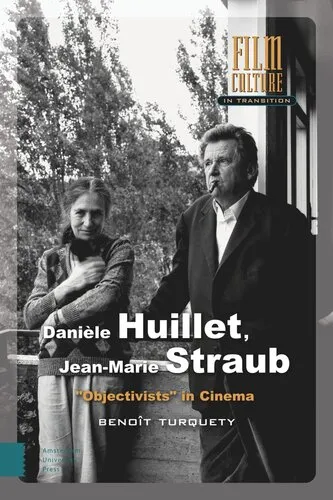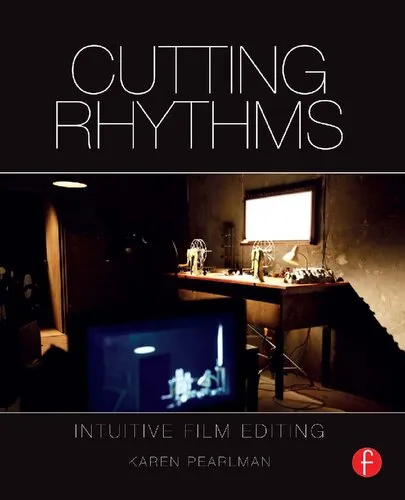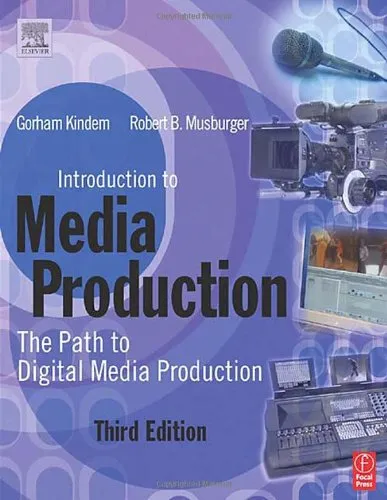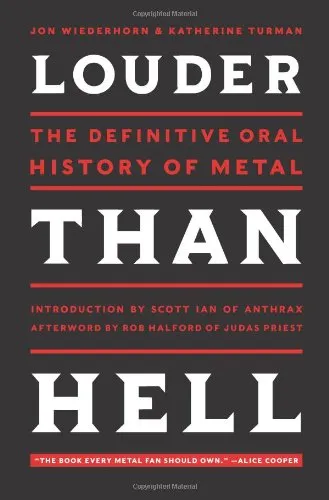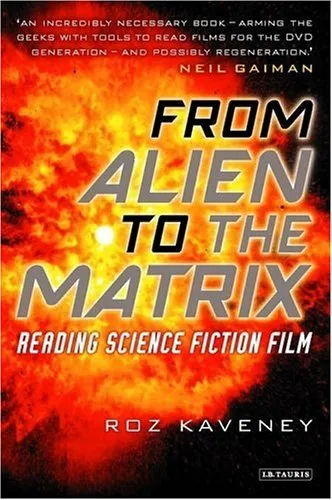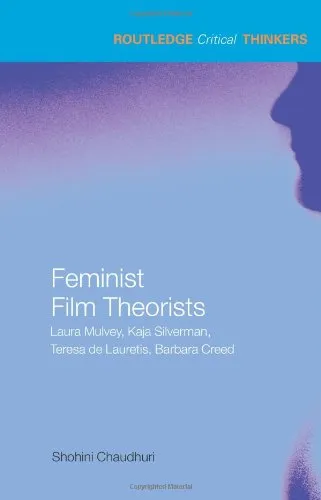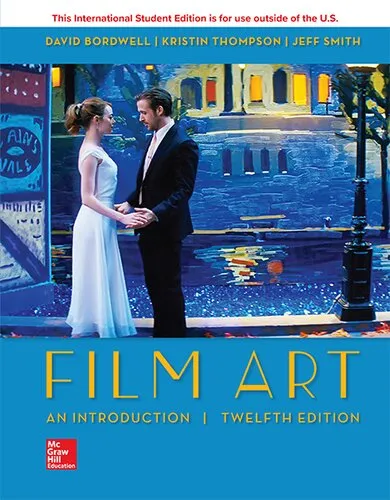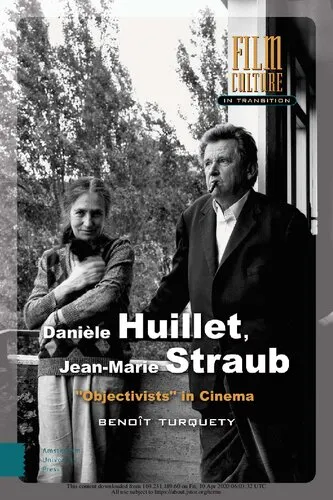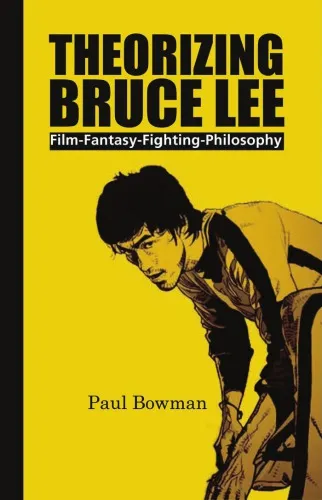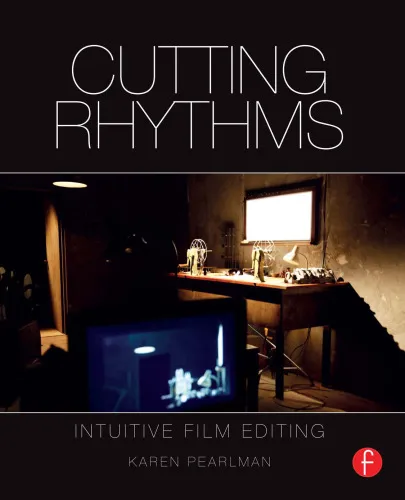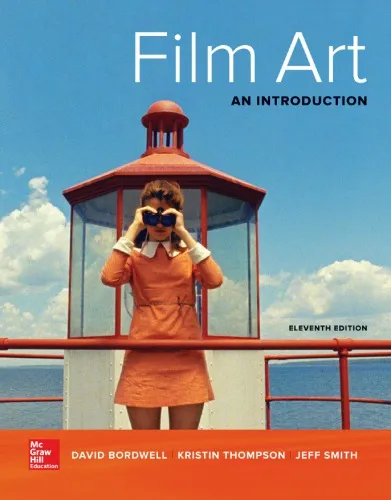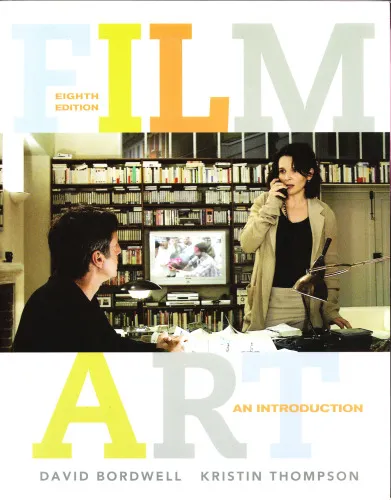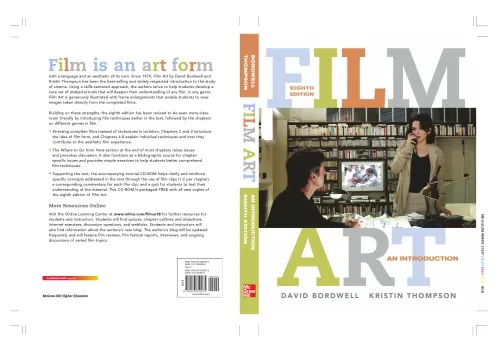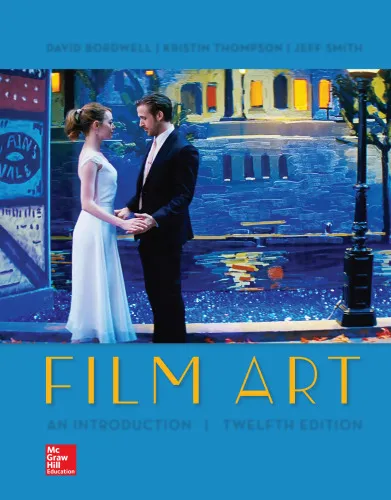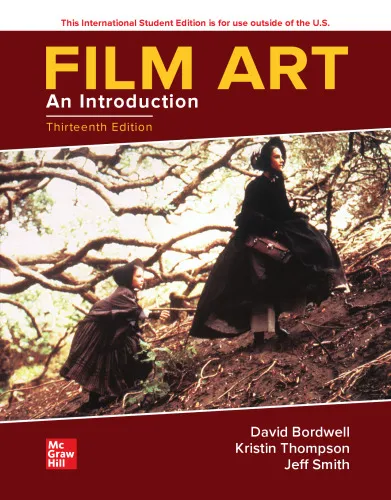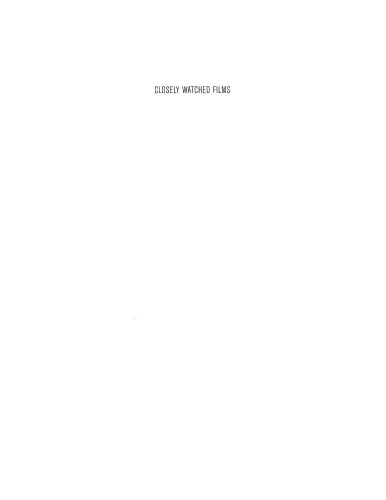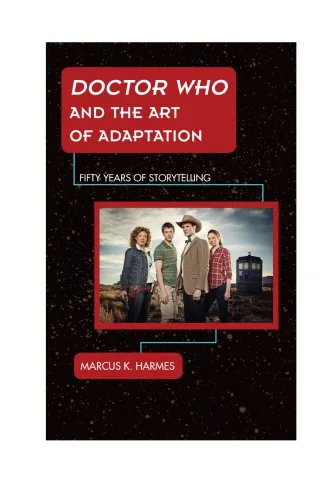Danièle Huillet, Jean-Marie Straub: "Objectivists" in Cinema
5.0
بر اساس نظر کاربران

شما میتونید سوالاتتون در باره کتاب رو از هوش مصنوعیش بعد از ورود بپرسید
هر دانلود یا پرسش از هوش مصنوعی 2 امتیاز لازم دارد، برای بدست آوردن امتیاز رایگان، به صفحه ی راهنمای امتیازات سر بزنید و یک سری کار ارزشمند انجام بدینکتاب های مرتبط:
معرفی کتاب "Danièle Huillet, Jean-Marie Straub: Objectivists in Cinema"
کتاب "Danièle Huillet, Jean-Marie Straub: 'Objectivists' in Cinema" اثری برجسته و پژوهشی است که به تحلیل و بررسی عمیق آثار، سبک فیلمسازی و فلسفه سینمایی Danièle Huillet و Jean-Marie Straub میپردازد. این کتاب به خوانندگان امکان میدهد که از زاویهای بیواسطه به زیباییشناسی و رویکرد خاص این کارگردانان نگاهی داشته باشند. در ادامه به جزئیات بیشتری درباره ساختار و محتوای کتاب میپردازیم.
خلاصهای از کتاب
کتاب به صورت دقیق به جنبههای گوناگون فیلمسازی Danièle Huillet و Jean-Marie Straub میپردازد و تاکید خاصی بر تأثیرات فکری و زیباییشناختی آنها دارد. نویسنده به بررسی ریشههای فلسفی ارائه فرم سینمایی این دو کارگردان پرداخته و تلاش میکند مفاهیم کلیدی همچون "Objectivism" در سینما را تشریح کند. همچنین، کتاب مخاطب را با جزئیات فرمی و محتوایی آثار آنها، از جمله طرز برخوردشان با متنها، موسیقی و مکانهای فیلمبرداری، آشنا میکند. این تحلیلها با نمونههای مشخصی از فیلمهای شاخص آنها همراه است.
بخش قابلتوجهی از کتاب به تاثیرپذیریهای فرهنگی و ادبی این دو کارگردان اختصاص یافته است. از آثار ادبی کلاسیک همچون نوشتههای هلدرلین (Hölderlin) و کافکا گرفته تا مشارکتهای نظری فلسفه اروپا، این عوامل همگی در شکلدهی دیدگاه آنها بازتاب دارند. این کتاب به وضوح نشان میدهد که چگونه این هنرمندان دیدگاههای سیاسی، اجتماعی و فلسفی خود را در قالبی کاملاً منحصربهفرد در سینما بازنمایی کردهاند.
نکات کلیدی کتاب
- 🎥 Objectivism در سینما: تعریف و بررسی این مفهوم بهعنوان هسته اصلی سبک سینمایی Huillet و Straub.
- 🎵 نقش موسیقی: نحوه استفاده از موسیقی بهعنوان عنصر روایی و زیباییشناختی در آثار آنها.
- 📚 ارتباط سینما و ادبیات: اقتباس از متون پیچیده و نحوه تبدیل آنها به بیانی تصویری.
- 🌍 رویکرد مکانمحور: اهمیت مکانها و فضاها در ایجاد معنای سینمایی و تاثیرگذاری عاطفی.
جملات مشهور از کتاب
Cinema is not just an art form; it's a political statement. Huillet and Straub transform reality into a poetic vision of truth.
By standing against conventional narrative structures, Danièle Huillet and Jean-Marie Straub remind us that cinema transcends entertainment.
چرا این کتاب مهم است؟
این کتاب درک عمیقتری از سینمای هنری و تجربی ارائه میدهد، بهویژه برای مخاطبانی که در جستجوی رویکردهای نوآورانه در این حوزه هستند. Danièle Huillet و Jean-Marie Straub با بهرهگیری از ترکیب ادبیات، موسیقی و تصویر، نوعی سینمای مقاومت ایجاد کردهاند که در برابر هژمونی رسانهای و تجاری ایستادگی میکند. این کتاب برای پژوهشگران، دانشجویان سینما و حتی علاقهمندان جدی به هنر، منبعی ارزشمند و الهامبخش به شمار میرود.
همچنین کتاب، پلی است میان خوانندگان و وارثان فرهنگ سینمایی اروپا. با ارائه تحلیلهایی دقیق و جزءبهجزء، این اثر دید تازهای نسبت به امکانات سینما و آینده آن میآفریند.
Introduction to "Danièle Huillet, Jean-Marie Straub: 'Objectivists' in Cinema"
"Danièle Huillet, Jean-Marie Straub: 'Objectivists' in Cinema" delves into the profound cinematic journey of two of the most uncompromising filmmakers of the 20th and 21st centuries. Danièle Huillet and Jean-Marie Straub redefined the possibilities of cinema as both an art form and a socio-political discourse, challenging conventions with their rigorous, methodical, and deeply intellectual approach to filmmaking. My intention with this book is to chart their groundbreaking artistic philosophy—a philosophy deeply rooted in materialism, labor, and community—and connect it to broader cultural and historical contexts. Through this study, I argue that their cinema epitomizes what it means to be true "Objectivists" in the realm of art and ideas.
Detailed Summary of the Book
The book explores the lives and works of Danièle Huillet and Jean-Marie Straub over several decades, analyzing the meticulous ideological, aesthetic, and technical choices that define their cinema. Huillet and Straub’s artistry is deeply influenced by literature, music, and revolutionary politics, taking inspiration from key figures like Brecht, Hölderlin, and Kafka. I trace how their ethos of collaboration, radical honesty, and economy of expression finds its way into every frame of their films.
At its core, this book describes how the duo’s work challenges the spectator to view cinema not as a vehicle for escapism or entertainment but as a participatory art form capable of disrupting conventional narratives. Their minimalist yet profound editing style, utilization of non-professional actors, and emphasis on authentic landscapes express their devotion to a kind of cinematic "truth." Furthermore, the book discusses the collaborative dynamic between Huillet and Straub, revealing how their egalitarian working relationship inverts traditional roles within the film industry.
Through close readings of their major works—such as Chronicle of Anna Magdalena Bach, Class Relations, and These Encounters of Theirs—I explore their commitment to political resistance, historical reflection, and philosophical inquiry. This dedication renders their films timeless and often inaccessible, but also deeply rewarding to those willing to engage with their complexities.
Key Takeaways
- Huillet and Straub's films are rooted in a profound respect for art, literature, and music, treating their chosen texts as collaborators rather than mere source material.
- Their approach to cinema prioritizes truthfulness in sound, image, and performance, opposing the artifice frequently found in mainstream filmmaking.
- They redefine the relationship between the filmmaker, audience, and cinematic medium, building works that demand active engagement and intellectual effort from the viewer.
- Collaboration and equality were central themes—not only in their political ideals but in the way they created and distributed their films.
- The concept of "Objectivity" in their work arises not from detachment but from a disciplined, materialist focus on the world as it is—unfiltered but deeply interrogated.
Famous Quotes from the Book
"For Danièle Huillet and Jean-Marie Straub, cinema is not merely an image projected on a screen; it is a dialogue with history, silence, and life itself."
"The cinema of Huillet and Straub does not provide answers. It demands questions—and demands them of anyone who encounters it."
"Their minimalist cinema does not reflect the world; it pierces through it, revealing layers of meaning previously unseen."
Why This Book Matters
As we navigate a cinematic landscape increasingly dominated by formulaic narratives and commodification, Huillet and Straub’s oeuvre offers an urgent counterpoint. Their films are a form of resistance—against softening the complexities of real life, against the homogenization of cultures, and against the erasure of individual labor and voices. In capturing their work in this book, I aim to inspire a renewed understanding of cinema as a platform for critical thought, artistic rigor, and communal dialogue.
This book matters for every student, critic, or lover of cinema seeking a deeper appreciation of what it means to create art with integrity. By showcasing the lives and philosophies of Huillet and Straub, I hope to spark discussions that extend far beyond their films—to questions of art, ethics, and activism in our current age.
Danièle Huillet and Jean-Marie Straub are not just filmmakers; they are philosophers of the moving image. Their legacy compels us to rethink the role of cinema in shaping a society that values truth, justice, and collective action. My book is both a tribute to their monumental contributions and an invitation to engage with their work anew.
دانلود رایگان مستقیم
شما میتونید سوالاتتون در باره کتاب رو از هوش مصنوعیش بعد از ورود بپرسید
دسترسی به کتابها از طریق پلتفرمهای قانونی و کتابخانههای عمومی نه تنها از حقوق نویسندگان و ناشران حمایت میکند، بلکه به پایداری فرهنگ کتابخوانی نیز کمک میرساند. پیش از دانلود، لحظهای به بررسی این گزینهها فکر کنید.
این کتاب رو در پلتفرم های دیگه ببینید
WorldCat به شما کمک میکنه تا کتاب ها رو در کتابخانه های سراسر دنیا پیدا کنید
امتیازها، نظرات تخصصی و صحبت ها درباره کتاب را در Goodreads ببینید
کتابهای کمیاب یا دست دوم را در AbeBooks پیدا کنید و بخرید
1480
بازدید5.0
امتیاز0
نظر98%
رضایتنظرات:
5.0
بر اساس 0 نظر کاربران
Questions & Answers
Ask questions about this book or help others by answering
No questions yet. Be the first to ask!
